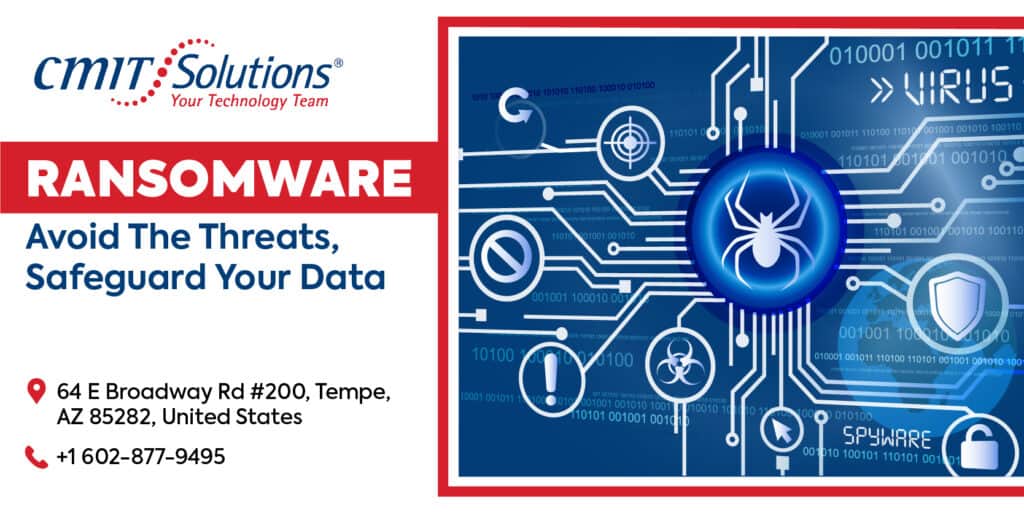As retail businesses handle vast amounts of sensitive customer data and financial records, they’ve become prime targets for cyber attacks. This sector faces multiple cybersecurity challenges, including:
- Phishing attacks
- Ransomware
- Data breaches
- Supply chain vulnerabilities
Hence, the critical need for robust cyber security in the retail industry is undeniable. Proactive solutions include:
- Implementing the latest, robust security measures
- Training employees on cybersecurity best practices
- Ensuring regulatory compliance
This article will explore why this sector sees increased cybersecurity threats, analyze different attack vectors, and provide actionable cybersecurity solutions.
We’ll guide you toward building preventive defenses and fostering a security-aware culture to navigate the evolving cyber threats.
Common Cyber Security Threats in Retail Industry
Before we delve into cybersecurity solutions for the retail sector, let’s first understand these six common attack vectors:
1. Phishing scams in the retail industry use deceptive emails, frequently target employees, with some reports indicating they account for 58% of incidents. Cybercriminals often intensify phishing campaigns during peak shopping seasons, capitalizing on the higher volume of emails and urgent communications to trick busy employees.
2. Malware and ransomware can infiltrate systems, including Point of Sale (POS) systems, to exfiltrate sensitive customer data, encrypt files, and demand ransoms. Such ransomware attacks in retail directly cause significant operational disruption and financial losses.
- The 2025 Data Breach Investigations Report reveals that 88% of SMB breaches involved ransomware, while 39% of breaches in larger organizations did.
3. Point of Sale (POS) security may be vulnerable to attackers’ exploitation, resulting in data breaches. These systems function like computers, making them susceptible, as seen in major retail breaches.
4. E-commerce platforms also endure DDoS attacks, account takeovers, and problematic bots. These online threats escalate during peak shopping seasons, causing fraudulent transactions, unauthorized account access, major interruptions to online sales, and further financial losses.
5. Cybercriminals also target third-party vendors, posing serious vendor risks to the network; a compromised vendor can expose sensitive customer data, leading to increased breaches.
6. Insider threats from negligent or malicious employees are challenging due to their legitimate access to systems.
Ultimately, these cyber attacks and data breaches result in severe financial losses, reputational damage, and loss of customer trust. Hence, understanding these threats is vital.
Now, let’s explore proactive defense measures.
Proactive Tactics to Ensure Data Security for Retail Businesses
For retail businesses, a clear cybersecurity strategy is vital when implementing proactive cybersecurity. Since many incidents stem from external weaknesses, foundational tactics to protect your operations are paramount. Data security for retail businesses is especially critical in this context.
So, what cybersecurity solutions are essential for small retail businesses? To build a solid security posture, consider these key proactive security measures:
Implement Strong Data Encryption
This safeguards your confidential and customer data. Data encryption renders information unreadable during storage and transmission to unauthorized parties, thereby protecting sensitive information.
Enforce Network Segmentation
Use network segmentation to isolate critical systems such as POS from general traffic. This tactic contains a breach’s impact and improves access control to sensitive network areas, as seen historically when segmented payment networks limited further intrusion.
Deploy Multi-Factor Authentication
Adopt universal Multi-Factor Authentication (MFA), requiring an additional verification method. This thwarts many account takeover attempts and mitigates phishing risks, even when login credentials are stolen or compromised.
Maintain Rigorous Updates and Patch Management
Regular system updates and timely patch management are crucial for addressing known software vulnerabilities before they can be exploited.
Establish Comprehensive Third-Party Risk Management (TPRM)
Implement a TPRM program, as thorough Vendor Due Diligence (VDD) ensures that partners, especially those handling payments, adhere to standards like PCI DSS compliance, which is crucial for overall data protection.
A robust TPRM program is essential for mitigating supply chain risks that can arise from compromised third-party vendors.
Establish a Robust Firewall
Firewalls are basic data breach prevention tools that create a barrier between the internet and the organization’s network. It keeps a vigilant eye on the network security for retail businesses by filtering, logging, blocking, and flagging malicious activities in the incoming and outgoing transmissions.
Install Antivirus Software
Antivirus software provides a rapid method to identify any malware or viruses that may be affecting devices and systems while actively working to eliminate them.
Collectively, these measures enhance defenses, forming crucial multi-layered technical barriers supported by tools like firewalls, antivirus software, and endpoint and customer data protection.
While these technical foundations significantly strengthen your cyber security in the retail industry, true cybersecurity resilience requires continuous adaptation to emerging vulnerabilities.
Next, we’ll show how sustaining this protection demands both technological upgrades and organizational cultural changes.
Cultivating Holistic Cybersecurity Resilience Within Your Retail Operations
True cybersecurity resilience in retail is about continuous proactive cybersecurity, integrating your team, operational workflows, and evolutionary defense, all of which thrive on cultural alignment between human insight and technology. Its foundation is a robust security-aware culture that prioritizes employee cybersecurity training.
Retailers with mature awareness programs face significantly fewer incidents, proving why sustained cybersecurity awareness training for all employees is vital, especially in industries with high turnover rates and increasing cyber security threats in retail.
Why Is Employee Training Important For Cybersecurity In The Retail Industry?
Basically, equipped teams don’t just avoid phishing. They drive employee-driven protection. Imagine cashiers spotting social engineering or staff detecting system anomalies before cyber attacks escalate. Training covers:
- Authentication protocols and email/document verification
- Password hygiene across critical systems
- Secure handling of customer data
Equally critical is incident response readiness. Your incident response plans in development should outline steps such as:
| Stage | Key Actions |
|---|---|
| Containment | Isolate compromised endpoints rapidly, aiming for “golden hour” timelines |
| Eradication | Deploy threat-hunting across channels; remove validated threats |
| Recovery | Validate system integrity thoroughly before restoring critical operations |
Security vigilance is driven by continuous monitoring, regular security audits, and quarterly penetration testing to identify vulnerabilities proactively by simulating peak attacks. Combine this with adopting a “Zero Trust” security architecture to verify every access request.
The final piece: augment human oversight with AI-powered security solutions analyzing transactions for anomalies. This layered approach fortifies defenses, preserving operational efficiency via automated containment.
Ultimately, genuine preparedness against cybersecurity threats in retail comes from interweaving these cultural, procedural, and technological strands.
Next, we’ll explore retail industry cyber threats and solutions for new franchises.
Empowering Store Leaders and New Retail Ventures With Practical Security Measures
For store managers handling daily operations and new entrepreneurs/startups establishing their tech foundations, cybersecurity must strike a balance between thoroughness and operational simplicity. Your digital defenses should serve as customizable scaffolding—strong enough to protect, yet adaptable to your unique business needs.
Security Essentials for Store Managers
Competition from cybercriminals intensifies daily. Therefore, treating your often vulnerable POS systems as customer trust gateways becomes critical. Start with these fundamental actions:
- Conduct visual inspections of POS terminals every shift to detect unauthorized devices or tampering.
- Enforce strict login protocols where staff members access only necessary system functions.
- Report phishing emails mimicking corporate communications immediately to the security teams.
- Understand company security policies and data protection regulations relevant to retail.
- Prioritize timely software updates and patch management.
- Enhance the awareness of risks associated with using unsecured networks (e.g., public Wi-Fi).
- Ensure all staff log off shared terminals after each use.
When setting up staff training, consider this scenario: “A cashier receives an urgent email from IT support requesting password verification during peak hours—how should they respond?” Real-world drills create more impact than generic lectures for time-strapped employees.
Foundational Security for New Retail Businesses
New entrepreneurs building their security infrastructure from scratch should prioritize cost-effective security measures:
- Activate automatic cloud data backups for transaction records and encrypt customer payment data. This protects customer information, including sensitive data.
- Verify that payment processors, a key type of technology vendor often used with e-commerce platforms, meet PCI compliance standards through VDD before integration.
- Train all employees to recognize fake customer service calls during their first week as part of onboarding security training, covering aspects of phishing awareness.
- Secure your Wi-Fi network thoroughly. Implement strong, unique passwords for all accounts and enable MFA wherever possible.
These store-focused and startup-centric measures against cyber security threats in the retail environment form protective barriers that adapt to your operational scale. By blending vigilance with pragmatic solutions, retail teams can defend customer trust while maintaining business agility.
Securing Your Retail Future With Continuous Cybersecurity Vigilance
For retail businesses, cyber security in the retail industry isn’t static; it’s a journey of security vigilance and proactive cybersecurity against evolving threats.
This means:
- Understanding current cyber security threats in the retail
- Implementing robust defenses
- Instilling a strong security-aware culture among employees
- Ensuring incident response readiness to build your adaptive defense
Want to protect your retail business? CMIT Solutions, Tempe, provides localized business IT solutions, protecting Tempe retailers from cyber attacks. Our strategies blend enterprise-grade tactics with operational flexibility.
Secure your cyber security in the retail industry for a competitive advantage with our tailored retail business IT solutions. Contact us today for your comprehensive IT assessment!




